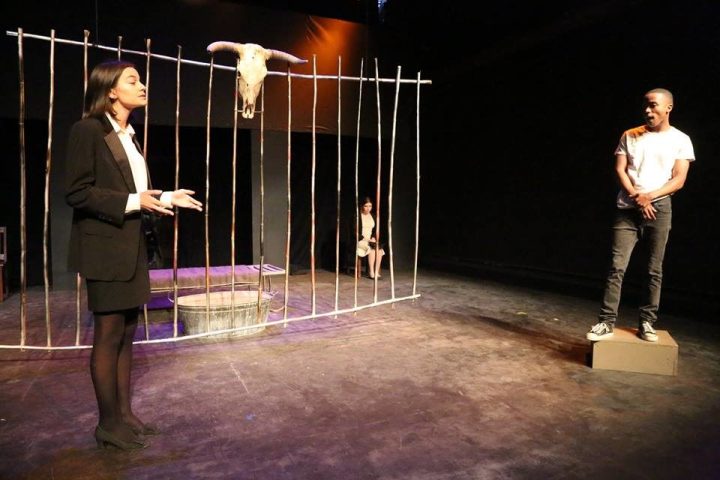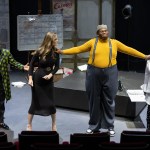THEATRE REVIEW
Esiseleni Sedini: Art as a catalyst for conversation

Lwanda Sindaphi’s play forces the audience to think: What do we know about these young men whom we see only as criminals? Do we know their aspirations, their dreams, their fears, their lived realities?
It is difficult to write reviews about Lwanda Sindaphi’s plays, perhaps it is because I am left wounded after every performance. We enter the theatre with Mandoza’s Respect Life playing.
Hlonipha i-life boy
Hlonipha impilo boy
Hlonipha ugogo nomkhulu
Ukuze iinsuku zande ezweni
And what an apt song, because what stuck out for me in the play are the ways in which black young men are seen in this country. The synopsis of the play reads as follows:
An old woman who is a traditional healer leaves her village to embark on a journey that leads her to the city. Her youngest son, a criminal, has committed a brutal murder. She believes, wholeheartedly, that the murder is a result of the unresolved past. She believes that the crime is systematic. The crime is a result of a hidden past brewing in the present.
Esiseleni Sedini (In the Cell of Sacrifice) scrutinises and interrogates the past in post-colonial South Africa. This past is then linked to the malicious crimes committed by black sons. Could these malicious crimes be the result of the malicious past created by the apartheid government?
And why is the psychology of the black masculine body not interrogated when it has committed a crime. Why is black crime perceived as just crime, as opposed to a thing that could be the result of the past and frustrations of the ongoing black economic repression? Are black masculine bodies naturally evil? These are the fundamental questions which govern the narrative of the story.
From the synopsis, we get a taste of the writer’s bravery in approaching such a difficult subject matter. His choice of song has left me revisiting old-school kwaito. Artists such as Zola and Mzambiya spring to mind. As I write this I am listening to Zola’s Mdlwembe. To these artists, it was not just about making music that resonates with the most marginalised of our country but making political statements which are evident in the music videos which depict realities too uncomfortable to be shown in mainstream media. And so, Sindaphi’s choice to revisit these songs and their narratives is intellectually commendable.
Watching the character, Dini, the young man who has committed the crime, I see in him the countless faces of young black men of this country. Boxed, as violent criminals and the like. But Dini questions this in his last words:
“Mama, what do they know about me?” A line that will leave me shaken for weeks. What do we know about these young men whom we only see as criminals?
Do we know their aspirations, their dreams, their fears, their lived realities? Maybe let me be more direct, do we actually care to know about their realities?
Following the release of the country’s 2017/2018 crime statistics, Anine Kriegler, a researcher in Criminology at the University of Cape Town, writes that until we see more equality in this country, crime is set to rise.
Artists such as Mandoza, Zola and Mzambiya were ahead of their time, bringing to life the complexities of the stories of black men in this country and Sindaphi revisits this these stories in an entrancing play. He compels us, for an hour, to listen to the story of one young man. To see how inequality snakes through society leaving a terrible mess.
For an hour, we see Dini, not only as a criminal but as a young man with shattered dreams, as a dear child to his mother. But also, he is someone who, in his words, desires to be indoda — in direct translation, to be a man. But he means more, he desires to be recognised in this society. He has agency and refuses to suffer in the township.
I wonder how our country would look if we gave others like him a chance to tell their story? DM
Esiseleni Sedini is written & directed by Lwanda Sindaphi. It runs at the Theatre Arts Admin Collective in Observatory at 7 pm until Saturday.
Disclosure: the writer, a BSC honours student at UCT, knows the writer/director personally.

















 Become an Insider
Become an Insider